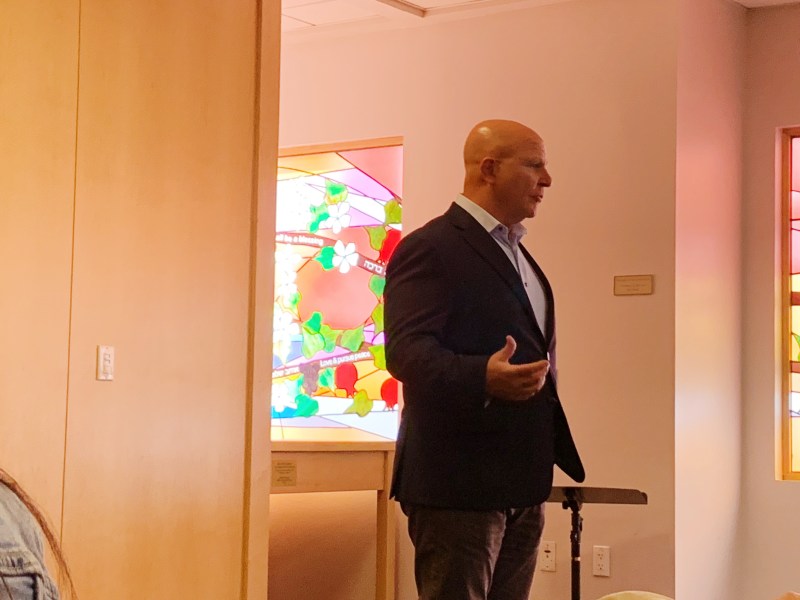Former National Security Advisor and Hoover Institution senior fellow H. R. McMaster discussed the recent history of American foreign policy and his own beliefs on the trajectory of American national security on Monday night as a guest speaker for the course POLISCI 221SI: “Issues in American Politics and Public Policy.”
The 33-year military veteran began his lecture with an account of President’s Day weekend 2017, when he received a call “out of the blue” from President Donald Trump’s Chief of Staff, asking him to take on the role of National Security Advisor. Though he did not reference his discharge from the White House on Monday, McMaster would serve 13 months in the Trump administration before being dismissed on the grounds of being “aggressive … gruff and condescending.”
In July 2018, the Hoover Institution announced McMaster’s return to Stanford’s public policy think tank, where he served as Hoover’s national security affairs fellow from 2002 to 2003 and as a visiting fellow until his 2017 appointment to Trump’s cabinet.
The former general prefaced his lecture by describing the overarching pattern of American foreign policy and national security attitudes since the fall of the Soviet Union. He described U.S. foreign policy as beginning with overconfidence and complacency, but progressively failing to “compete effectively [due to] pessimism and even defeatism … subsequent to 9/11.”
American victories in the Cold and Gulf Wars, McMaster said, generated “a tremendous amount of confidence in American military prowess … as if the arc of history dictated the triumph of democracy and free market systems over authoritarianism.” This notion was shattered, he added, when different future threats — like Al Qaeda — began appearing, and America’s socio-political complacency became evident.
“We often debate whether or not we should [have] invaded Iraq,” McMaster said. “I think what we really should be debating is who the hell thought it would be easy.”
He continued by stating that the Bush administration had a fundamental misconception about war: that it would be “fast, cheap and easy.” While the Bush White House under-appreciated the costs and risks of action, McMaster said, the Obama administration under-appreciated those of inaction, leaving the United States “incompetent in the face of National Security threats.”
Also on the subject of threats, the Hoover fellow highlighted the United States’s competition with China and Russia as the issue worrying him most.
“[They] probe at the far reaches of American power,” he said. “And while what China really wants to do is tighten its exclusive grip on power, Putin [intends] to accelerate the demise of the West [by] a sustained campaign of political subversion.”
The former National Security Advisor said these threats have grown due to American disengagement, and that our strategic narcissism does not give any agency to “the other,” but merely expects that they will conform to our baseless expectation. He further suggested that the audience read the December 2017 National Security Strategy and George Packer’s The Unwinding for more information.
“Good beach-reading,” he said with a nod.
Contact Ryane Liao ryaneytl ‘at’ stanford.edu.
